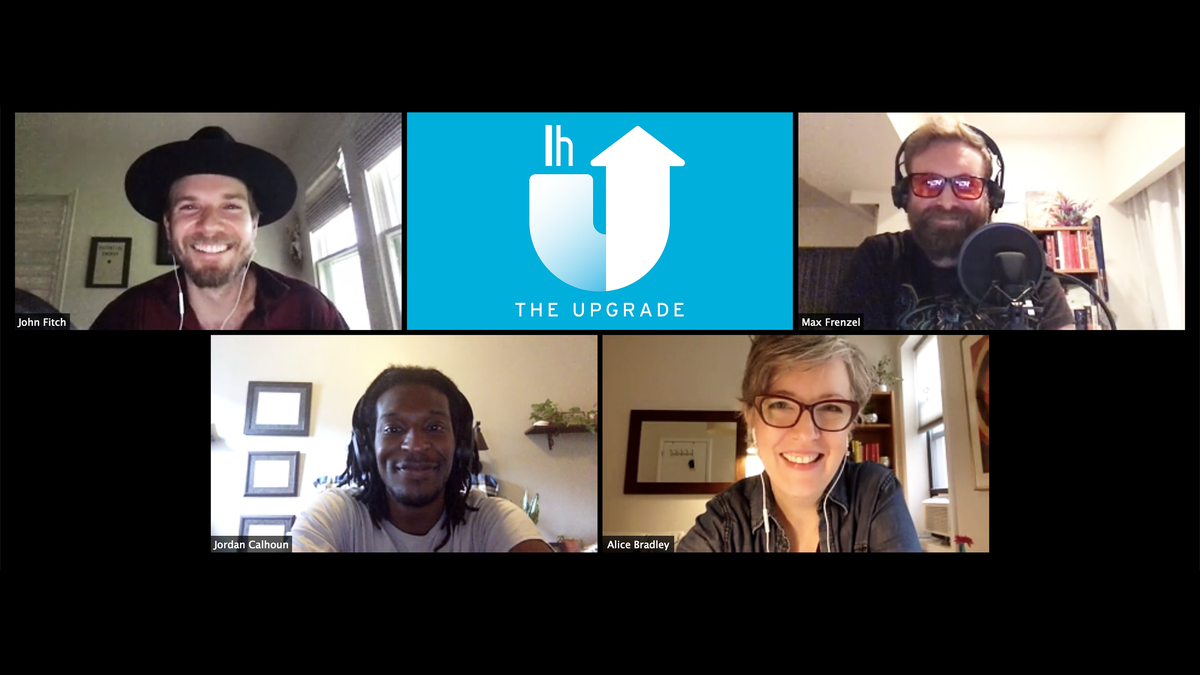How to Transform Your Life Through Leisure, With Writers John Fitch and Max Frenzel - 4 minutes read
 Photo : Micaela Heck/Elena Scotti
Photo : Micaela Heck/Elena ScottiThis week, we’re learning how taking breaks and time off from work can actually help us improve both our creativity and productivity. Writers John Fitch and Max Frenzel speak with us about how to develop what they call a quality“rest ethic, ” why strategic breaks and time off are necessary for creativity and innovation, and how we can start to transform our culture of busy ness to one with a better emphasis on work-life balance.
Advertisement
John and Max are the authors of Time Off: A Practical Guide to Building Your Rest Ethic and Finding Success Without the Stress.
Advertisement
Listen to The Upgrade above or find us in all the usual places podcasts are served, including Apple Podcasts, Google Play, Spotify, iHeartRadio, and NPR One.
Highlights from this week’s episode
From the John Fitch and Max Frenzel interview
On how we need to start re-framing the idea of time off:
We’ve all been a part of adding to this whole culture of busyness. [T]his concept of: if you’re visibly busy, you are effective. Where if you step back and think about it, quantity of input never guarantees quality of output. And I look at it as we need a new vocabulary for time off, because prior to our book, I found that people appreciated time off, but their connotation of it was very limited. It was typically just a holiday or vacation, whereas I know it’s a daily practice, a weekly practice, and it involves not just these macro forms of time off, but microforms of time off. And so I think our goal was to just remind people that the connotation of it was much more expansive than we default to.
On how to start normalizing the concept of leisure in the workplace:
[A]ll of us are a part of a team in some way, whether it’s your direct job or if you’re a freelancer, you have clients and you’re kind of a team. [J]ust start by asking people, what do they do in their time off? Usually we just default, “hey, let’s go right to the project.” “Hey, let’s talk about the deadline.” And it’s all about the work ethic. Work, work, work, work. Whereas if we if we take time to actually be curious of what people do in their time off, you’ll see like people’s eyes light up and they’ll talk about their hobby or these things they do outside of work. And that’s like the greatest fuel for any team. It’s that essence of them, the parts of us that make us interesting. And I’ve found that in my professional career prior to writing this book, those conversations didn’t happen. And so talking about them at work will I think help people realize that, wow, what Alice or what Jordan and what Max does outside of work actually makes them really interesting. So we should honor that more. And perhaps there’s a tiny shift in our culture after having that conversation.
Advertisement
On how taking a break helps spark creativity:
I mean, think [about] what creativity is. It’s really connecting those distant dots. And if you can’t see grinding things out, if you’re always too close with your head into problem, you’re not going to connect those distant dots. You really need to step away and kind of tweak your subconscious with this long leash and let it run freely so you can do the work for you. And it’s really, as John said, kind of giving your subconscious the time to do this by itself is such a wonderful process. You just need to actually allow it to do that. And it presents you with this gift of insight and innovation.
Advertisement
To hear more of John and Max’s advice on how to take time off in a way that benefits you, listen to the full episode above or via your podcast platform of choice.
Have any feedback or ideas for future episodes? Want to be featured on the show? Leave us a voicemail at 347-687-8109 or send a voice memo to upgrade.com.
Advertisement
Episode Transcript
Source: Lifehacker.com
Powered by NewsAPI.org